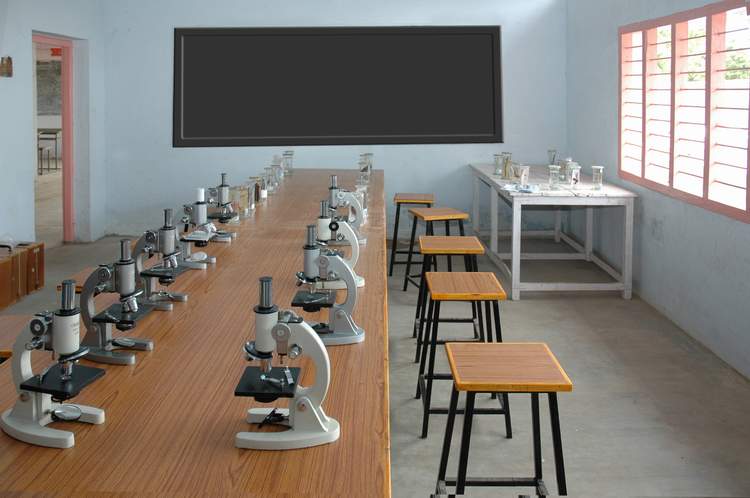Typically, an introductory course in biology will require two kinds of text materials. A lab manual is needed in addition to a textbook. Textbooks for science courses are generally lengthy and expensive (over $100). However, it is a good idea to search for used textbooks online. Often, used books sell for half the cost. The lab manuals are usually inexpensive and some schools provide them at no cost to students. This being said, the lab manuals are the most important resource in the class. Many instructors assign textbook reading, but the reading is usually only to supplement what the professor teaches in lecture. The biology lab manual is needed almost every lab session.
The typical lab meets once a week for two to three hours. During this time, different plant and animal structures and functions are observed using live specimens, diagrams, microscope slides, and plant and animal dissections. Each lab session will focus on a different living organism. The first lab may start with the examination of microscopic organism, and last lab may include a dissection of a small mammal. The lab manual provides instructions and pictures to go along with each session. Writing down notes and observations is key to understanding the different parts of organisms. The lab manual may be graded, so good notes will boost the results.

An important aspect to the labs are practical examinations. These consist of several (around twenty) stations setup around the laboratory. Practicals are only given typically two to three times a semester. Most stations are hands-on and represent aspects of the previous labs. For example, a flower with pins in several places may be set on a plate. The pins indicate the different parts of the flower to be identified. Also, there may be a station with only a piece of paper with a few fill-in-the-blank sentences on it. These often refer to different lab techniques, such as how to prepare a microscope slide, or how to properly dissect a muscle. Overall, the labs in an intro to biology course are fun and interesting. Some memorization is required, but if notes are taken in the manual, practical exams should be fairly easy.
Considering the biology lecture, a notebook is definitely needed. Most professors use PowerPoints to display key points and diagrams of cell processes. Some professors include all the information needed for the class on the slides, while others only place highlighted information on the slides and lecture the rest of the material themselves. Nevertheless, taking notes on the PowerPoints or printing them out if available is the key to success in an into to biology college course. Filling in the slides with a few notes from the professor’s lectures also helps greatly.
Examinations can be fill-in-the-blank mixed with multiple choice, true/false questions, and short answer questions. Many intro to biology courses simply give multiple choice and true/false questions only that are recorded on a scantron sheet. Studying the PowerPoints and lecture notes is the most successful way to study, as there are usually no quizzes. Reading the text is helpful, but often not necessary, as it can be overwhelming. Class notes cut the material in half, and give specific points that the professor deem important.
Finally, introductory biology courses cover the entire tree of life, from microbes to mammals. The courses focus on the different bodily appendages and internal structures of organisms. This requires memorization. Also, chemical processes of organisms are covered, such as photosynthesis, respiration, reproduction, digestion, and cell-to-cell contact. Three processes that stand out are, Mitosis, Meiosis, and the Krebs Cycle. Many more processes are covered as well. Along with these cellular cycles, detailed diagrams are often used, and it is important to study these closely and understand how the functions work. It is very difficult to simply memorize diagrams.
Biology can be interesting, as it pertains to every human being. An intro class will cover major general aspects of all life forms. The generalization of everything is great for people without a science background because small details aren’t needed. This type of course is perfect for those wishing to pursue a degree in science because it encompasses many parts of biology and allows students to develop their understanding for more advanced courses.











Comments are closed.